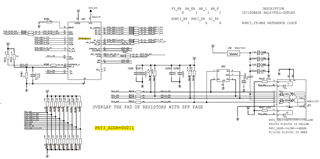Other Parts Discussed in Thread: DP83822IF
I'm trying to enable the dp83822if driver under uboot based on SDK8.0 of AM64x.
I want to know how to config the dp83822if as a generic phy driver under uboot?
CONFIG_PHY_TI=y
CONFIG_NETDEVICES=y
CONFIG_DRIVER_TI_CPSW=y
and in phy.c, modify the .uid and .name as below,
.uid = 0x2000a240,
.mask = 0xfffffff0,
.name = "TI DP83822",
Are these configurations enough?




